New Scientist covers the latest developments in science and technology that will impact your world. New Scientist employs and commissions the best writers in their fields from all over the world. Our editorial team provide cutting-edge news, award-winning features and reports, written in concise and clear language that puts discoveries and advances in the context of everyday life today and in the future.
Elsewhere on New Scientist
Net-zero action • The biggest buzzword in climate action is being used as a cop-out
New Scientist
Fearsome stink bug has tusks
Analysis Climate • Why 2023 is shaping up to be the hottest year on record Global weather phenomena are conspiring to raise temperatures further this year, adding to human-driven climate change, finds Madeleine Cuff
AIs will become useless if they keep learning from other AIs
Ancient reptiles’ long necks increased risk of decapitation
Cryptocurrencies go quantum • Using quantum computers to mine cryptocurrencies like bitcoin could slash their huge electricity use, finds Alex Wilkins
Humans pumping groundwater has shifted Earth’s axis
Chimpanzees can prepare for alternative futures
Synthetic embryo breakthrough • Human embryo-like structures have been made from stem cells and reached a landmark stage. Clare Wilson explains why it matters
A star eating a giant planet has created a hellish inferno
Record-breaking superconductivity • Scandium can turn into a superconductor at a higher temperature than any other element
Fuel cell recycles plastic waste and carbon dioxide
Vaginal fluid swab benefits babies • Transferring a mother’s bacteria to a newborn can change its microbiome and health
Brain activity ‘bar codes’ may link to specific memories
Fighting off a robotic rival boosts male flies’ mating success
North American wildfires may be creating clouds over Europe
Quantum computer wins face-off • IBM’s Eagle quantum computer has bested a supercomputer at a complex calculation
Ancient plant’s leaves didn’t follow the golden ratio
‘Smart drugs’ make people worse at problem-solving test
Tiny robot could stop bleeding from inside the body using heat
Analysis Fossil fuels • Shell can’t say it backs net zero while betting on oil and gas Like its rival BP, Shell claims it is committed to reaching net zero by 2050, but this doesn’t add up, finds Madeleine Cuff
Fastest free-moving star in galaxy caught going 2285 km/s
Extinct lizard was a supersized skink
Muons help below-ground navigation
Cave reveals early evidence of modern humans in Asia
Really brief
Time to open up • Medical studies of diverse populations benefit humanity as a whole, say Michal Elovitz, Stephen Quake and Hannah Valantine
Field notes from space-time • A massive problem Traditional explanations of why objects have mass can feel unsatisfactory. Particle physics helps, but it doesn’t answer everything, says Chanda Prescod-Weinstein
Your letters
Loss and damage
The books we’ll be packing…
Let science refresh your mind • Travelling is a great time for a rethink, whether about the human mind or the evolution of cats – or even the importance of red algae for Earth, says Simon Ings
Find your fictional future • Great sci-fi offers many ways to escape our troubled world and teaches us how to grapple with it, says Sally Adee
Brilliant reads for young minds • Baby frogs, puberty, enhanced humans, climate change – exciting books on these subjects will engage kids of all ages, says Imogen Russell Williams
“We’re reframing life by thinking about it as a lineage” • Astrobiologist Sara Imari Walker is developing a deeper...
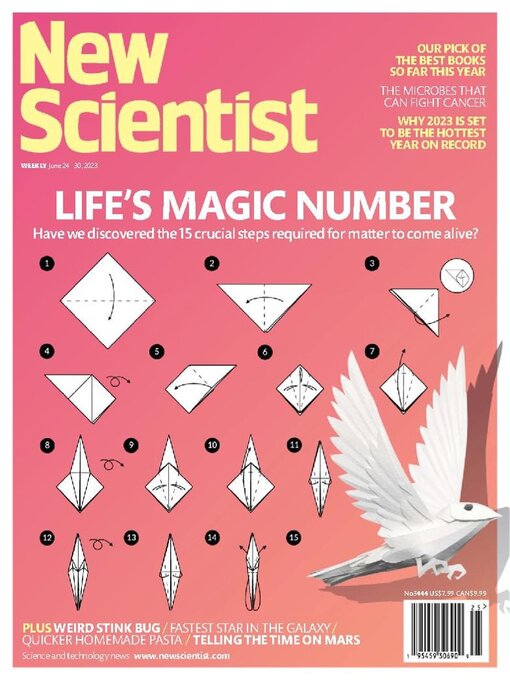
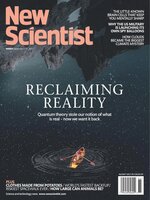 Sep 07 2024
Sep 07 2024
 Aug 31 2024
Aug 31 2024
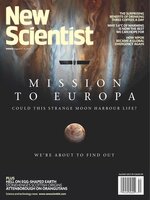 Aug 24 2024
Aug 24 2024
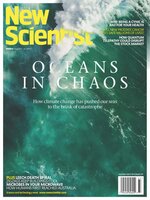 Aug 17 2024
Aug 17 2024
 Aug 10 2024
Aug 10 2024
 Aug 03 2024
Aug 03 2024
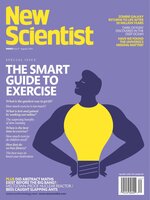 Jul 27 2024
Jul 27 2024
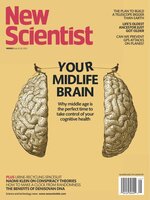 Jul 20 2024
Jul 20 2024
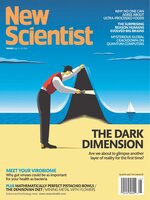 Jul 13 2024
Jul 13 2024
 Jul 06 2024
Jul 06 2024
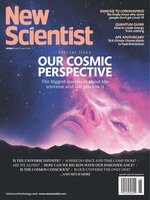 Jun 29 2024
Jun 29 2024
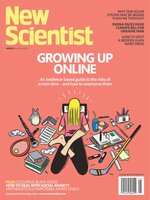 Jun 22 2024
Jun 22 2024
 Jun 15 2024
Jun 15 2024
 Jun 08 2024
Jun 08 2024
 Jun 01 2024
Jun 01 2024
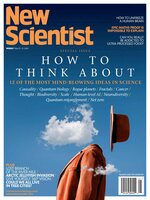 May 25 2024
May 25 2024
 May 18 2024
May 18 2024
 May 11 2024
May 11 2024
 May 04 2024
May 04 2024
 Apr 27 2024
Apr 27 2024
 Apr 20 2024
Apr 20 2024
 Apr 13 2024
Apr 13 2024
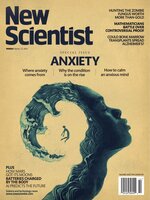 Apr 06 2024
Apr 06 2024
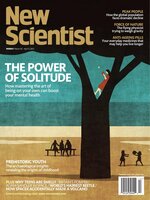 Mar 30 2024
Mar 30 2024
